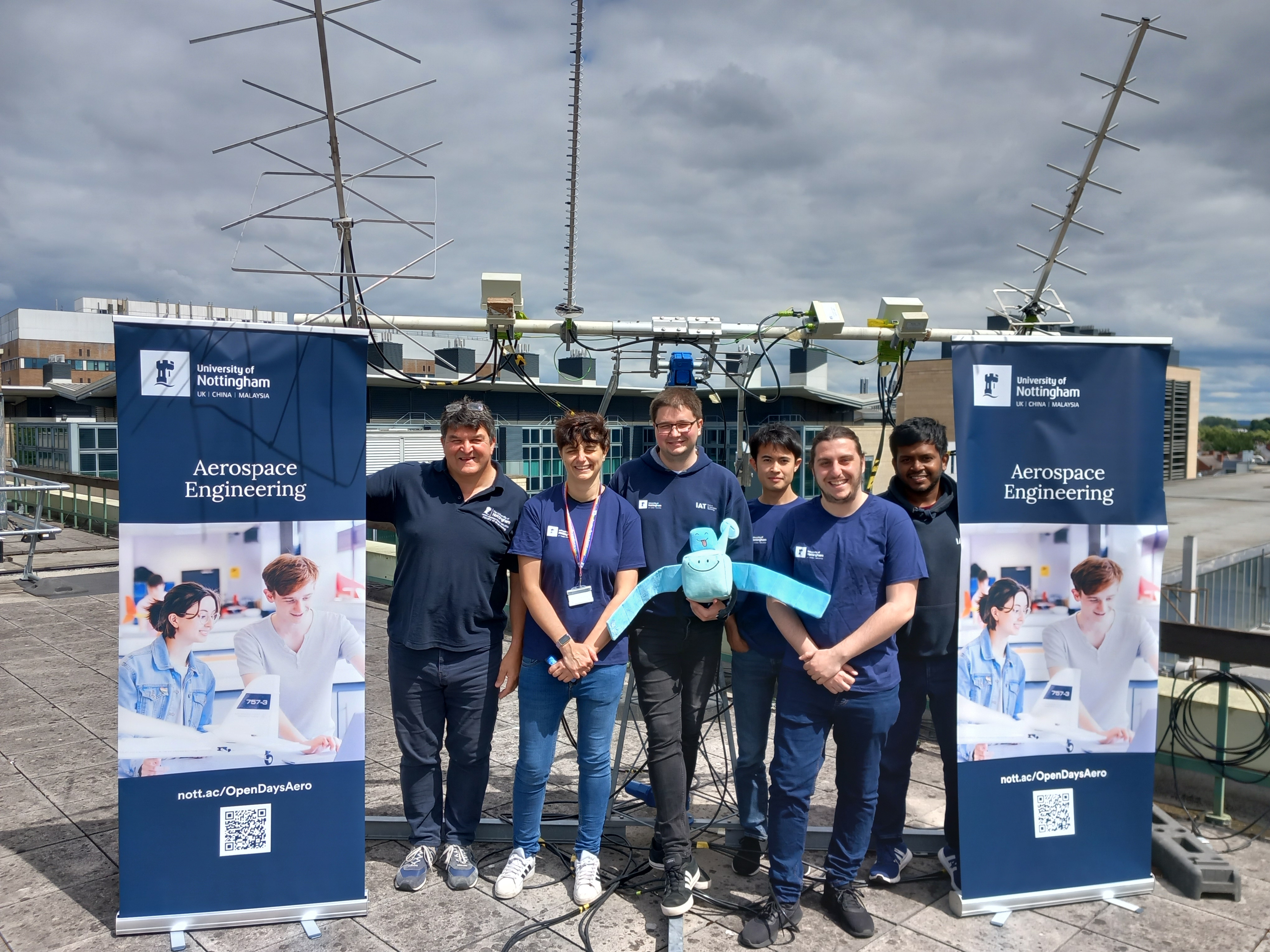University of Nottingham supports ESA's Young Professional’s Satellite

Image courtesy University of Nottingham
The NottSpace Lab provided ground station support for the mission, with advanced capabilities enabling students to receive signals from the satellite, which was launched onboard the maiden flight of Ariane 6 on 9th July.
Ariane 6, which launched from French Guinea, represents the ESA’s aim to give governments and companies across Europe independence to explore space, as it has previously relied on American resources following the retirement of Ariane 5 last year.
The YPSat project was managed entirely by a team of young professionals at the ESA and aims to record crucial phases of flight including the deployment of CubeSat – a type of nanosatellite.
The ground station based at the University of Nottingham, along with other ground stations around the world, played a crucial role in receiving telemetry data from YPSat during its three-hour mission.
After working with the ESA for several months to plan the exercise, students were able to effectively track the satellite and receive accurate data after the small satellites were successfully deployed.
It is hoped that this satellite will collect magnetic data along the flight path of Ariane 6 and, along with data collected by similar experiments on the International Space Station, will be used to build a detailed map of the Earth’s magnetic field.
The University of Nottingham was the only university from the UK to support ESA's YPSat mission through ground station support and was completely run and operated by students, providing students with a unique and hands-on experience to support space activity.
In addition to tracking and supporting missions like this, the NottSpace ground station will be heavily used to command and receive data from JamSail, the university’s first CubeSat launching by the end of 2026.
This mission will aim to collect data about sources of GNSS interference, and will be used to improve the robustness and resilience of critical infrastructure which uses these technologies.
Luis Cormier, PhD student in Geospatial Systems at the University of Nottingham, said: “Being able to play a part in receiving data from this important mission alongside collaborators from across Europe was an incredible experience and taught me a lot about spacecraft communications and tracking.
“With the mission designed and launched by young professionals at ESA, it showed how important hands-on experiences like this are at university for developing the skills needed for a career in space. I look forward to our team supporting other similar missions in the future, as well as our own CubeSat when it launches in the coming years.”
Dr Chantal Cappelletti, Assistant Professor in Aerospace Engineering, said: “I am happy and grateful to see our Ground Station operational and our students actively involved in receiving satellites from space. This hands-on experience and the opportunity to be part of a real space mission, especially in an international context supervised by the European Space Agency, is an extraordinary opportunity for students at the University of Nottingham.
"As the University of Nottingham Space Engineering team (NottSpace), we look forward to receiving other satellites and, hopefully, our own satellites soon from space."
Dr Nishanth Pushparaj, Assistant Professor in Aerospace Engineering, added: "We are proud of our collaboration with ESA on the YPSat mission. Supporting this mission onboard the maiden flight of Ariane 6 through the University of Nottingham's ground station is a testament to our commitment to fostering innovation and excellence in space exploration."













